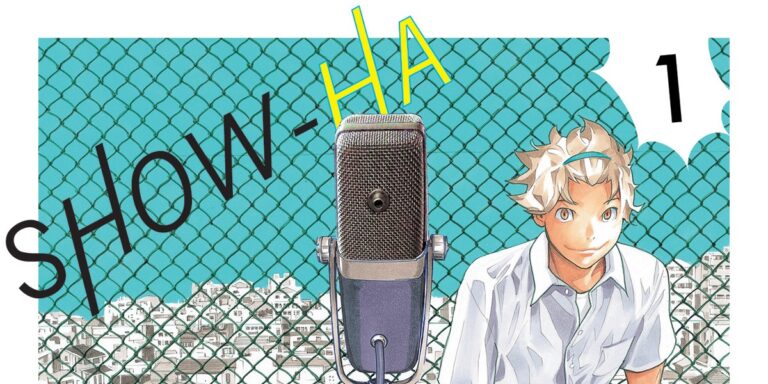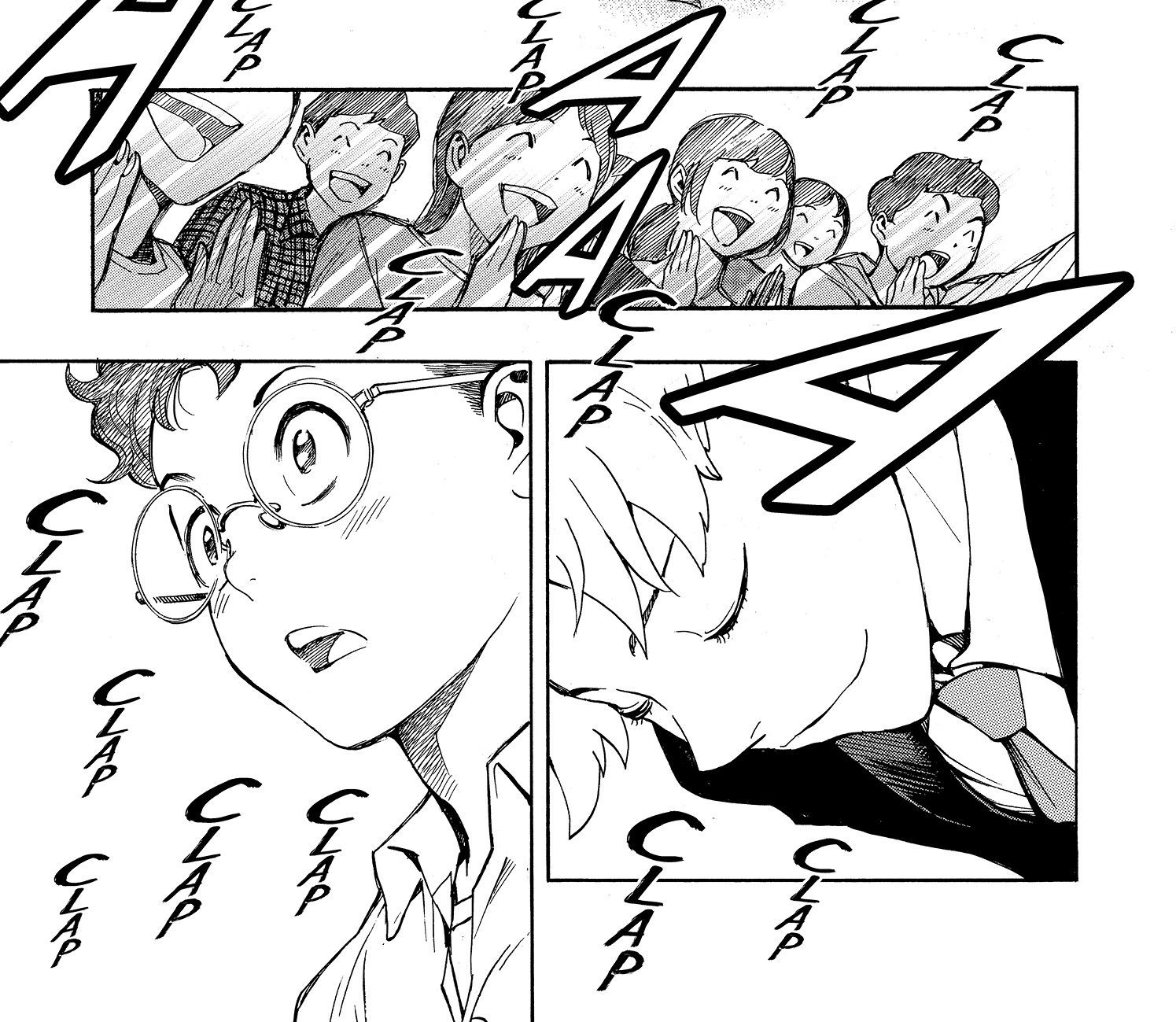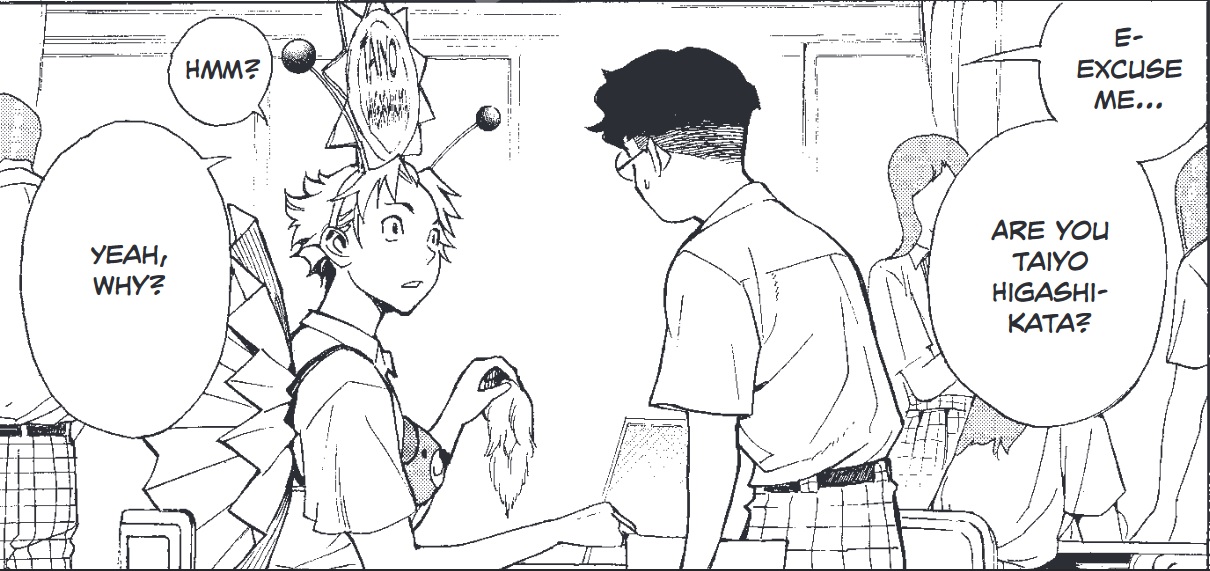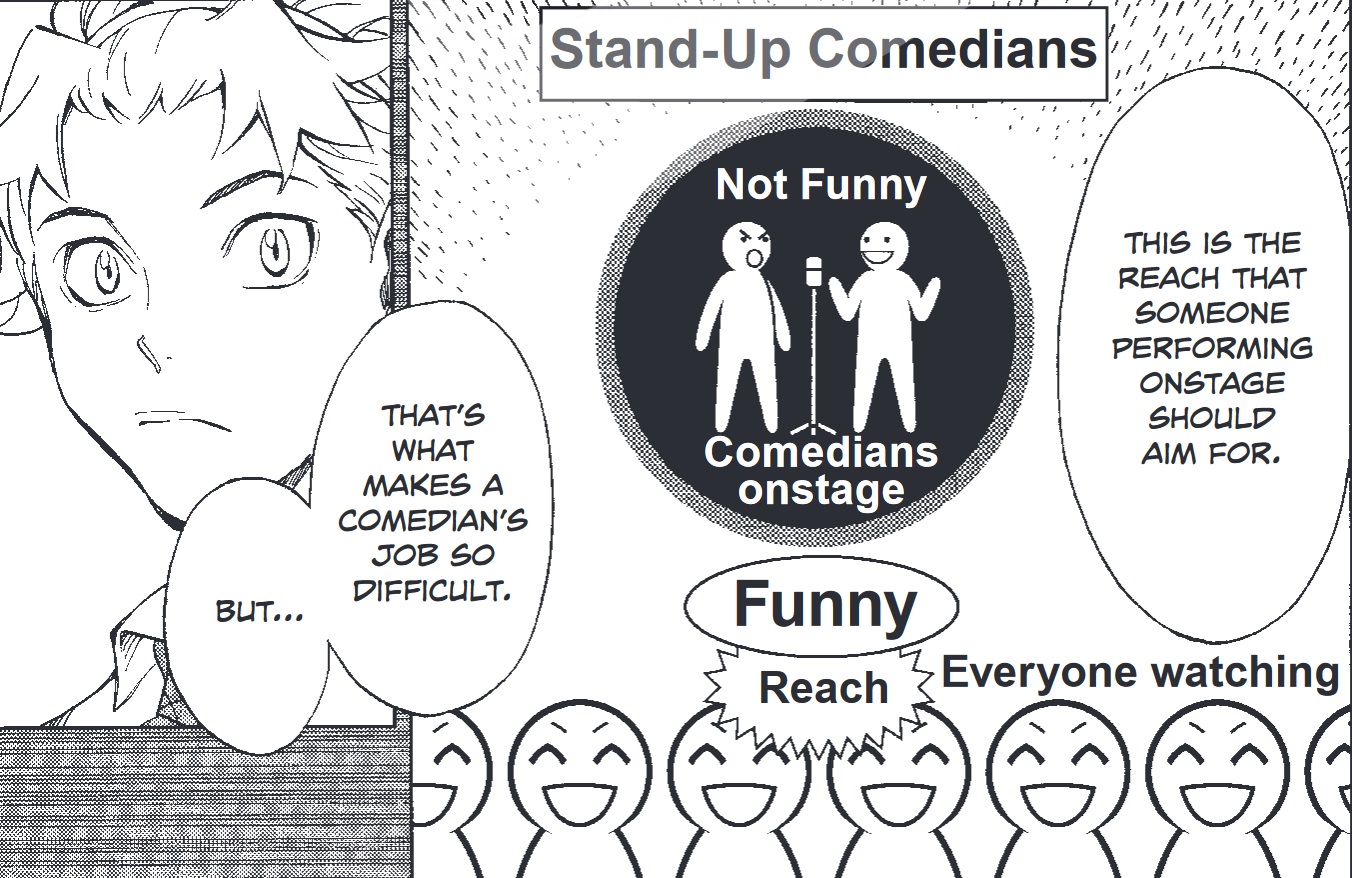Show-ha Shoten!, a new work by Akinari Asakura and Death Note artist Takeshi Obata, is essentially a music manga, except that music is replaced with stand-up comedy. All the basic tropes of the genre are on full display in the first volume. There are mismatched lead characters with complementary talents, great potential, and deeply personal motivations to succeed. There are moments of self-doubt and second-guessing. There are disapproving parents who see stand-up comedy as a hopeless fantasy. And there are competitions in which the characters need to overcome their fears and trust they have what it takes to succeed.
This is, admittedly, pretty well-worn territory, so anyone familiar with Bocchi the Rock, Blue Giant, or Carole & Tuesday will quickly pick up the usual beats (no pun intended). But while Show-ha Shoten! might be formulaic, it’s also a creative new take on the formula that kept me hooked from cover to cover. The three chapters featured in Volume 1 succeed in setting up the premise, establishing the characters, and sowing the seeds for future developments and conflicts down the line, all while exploring what makes comedy tick. All in all, it’s a pleasant blend of the intense stakes of a music manga like Blue Giant with the easygoing tone of slice-of-life school comedies, and it should definitely appeal to audiences of both genres.
Show-ha Shoten! follows a pair of high school students who find they complement one another as a comedy duo. We have Shijima Azemichi, a model student with a secret passion for comedy. His shyness and stage fright prevent him from performing, though, so he participates in online joke contests as “Everyday Shijimi” instead, building a considerable following in the process. On the other hand, there’s Higashikata Taiyo, a former child actor with plenty of confidence, on-stage experience, and dreams of being a famous comedian. The only problem is, he’s not particularly good at writing jokes. When Higashikata finds out that Shijima is actually “Everyday Shijimi,” the two pair up for the school culture festival’s comedy show. Unexpectedly, their sketch is a hit, and their success inspires them to continue performing together, with the goal of making it as professional comedians.
A premise like this generally requires the leads to be likeable and relatable, and fortunately, Show-ha Shoten! manages it well. Of the two main characters, Shijima gets the bulk of the exposition and development in this initial outing. He’s a classic “quiet” archetype: smart, talented, and dreaming of bigger things, but unassertive and lacking confidence. Not only that, but his parents aren’t convinced he has the talent to be a comedian, and his father fears he’s setting himself up for failure and disappointment. Despite this, Shijima overcomes his initial reservations (with a little encouragement from Higashikata) and gives some successful initial performances, gaining a little confidence and swaying his parents a bit in the process. Small victories, to be sure, but credit to Asakura’s writing for putting Shijima on the path to his goals while leaving plenty of room for growth along the way.
Although Volume 1 is mainly Shijima’s story, Higashikata is still effectively introduced as a solid counterpart. Shijima may invite sympathy and encouragement, but Higashikata’s confidence and occasional obliviousness immediately make him the lovable goofball of the pair. Still, it’s evident that there is more to Higashikata than being a clown, and one of the strengths of this volume lies in how well it hints at some of the darker parts of his past without revealing too much. Especially notable is his confession to Shijima that he used to perform comedy until his partner died of an illness, and that his motivation to succeed as a comedian stems from a desire to carry on his former partner’s legacy. It’s a great way to set up Higashikata’s personal stake in the endeavor, while also making us wonder what his career was like before he met Shijima.
While the whole first volume of Show-ha Shoten! is a good read, some of the most enjoyable and original parts of the manga are the comedy performances themselves. Notably, these scenes have some genuine tension, since live performance is inherently filled with uncertainties—will every joke land? Will the audience enjoy it? Will one of them forget a line? Also, since Higashikata does a great deal of ad-libbing, not even Shijima knows exactly where the routine might go, so the reader is left guessing along with him. As a bonus, several of these performance scenes feature some reflective commentaries, mainly from Shijima, which deconstruct the artform of standup comedy and analyze what makes a routine succeed. This neatly showcases the characters trying to work things out and develop their comedic skills, but at the same time, it invites the reader to think more about the nature of humor itself.
In his biography at the end of the volume, Akinari Asakura reveals that part of his motivation to create Show-ha Shoten! was his own fascination with comedy. He muses, “What does it mean to laugh? What does it mean for something to be ‘funny’? I hope you’ll ponder these questions with me.” If this is an invitation, consider it accepted. Show-ha Shoten! may be Asakura’s first full-length project as a manga writer, but Volume 1 is definitely a strong start for him. It’s a clear, well-paced, and efficient introduction, and while it begins to get things rolling by the end of the third chapter, it’s careful not to overwhelm the reader with too many details or too much action. If you’re into manga about aspiring musicians but want a break from the usual stories about singers and guitarists, then Show-ha Shoten! will be well worth your time.
Show-ha Shoten! is slated for official release on February 7, 2023.
SHOW-HA SHOTEN! © 2021 by Akinari Asakura, Takeshi Obata/SHUEISHA Inc.
Anime Corner received a review copy of Viz Media’s release of Show-ha Shoten! manga for review purposes.




Participate In Discussions